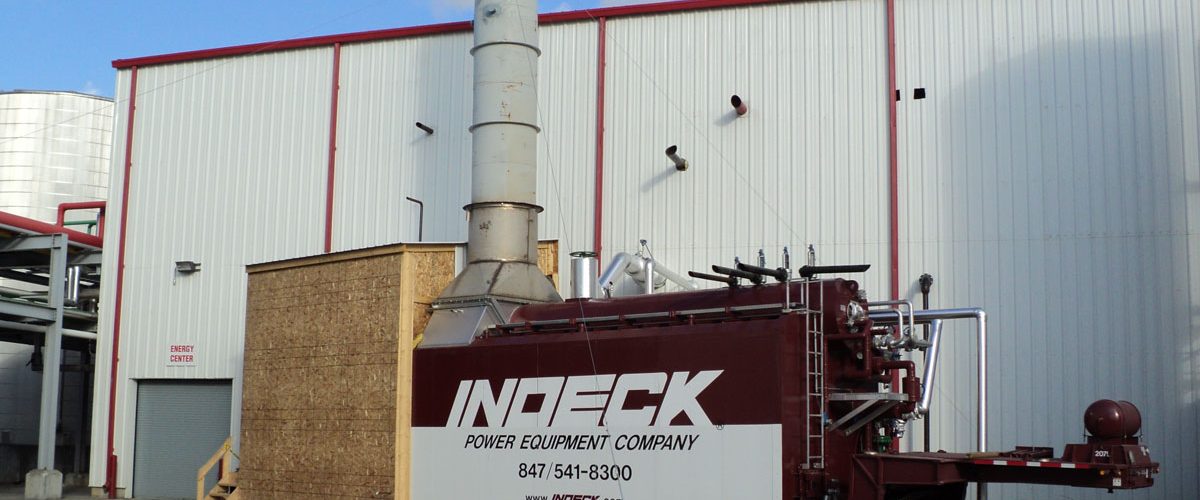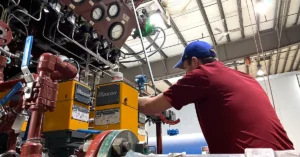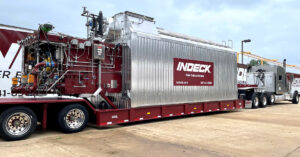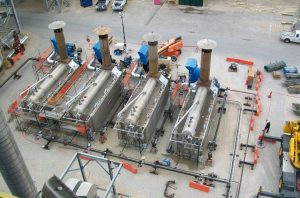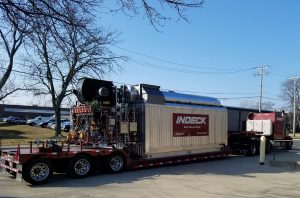NO TWO STEAM POWER PROJECTS ARE ALIKE. With steam needs ranging from a simple “one in, one out” replacement to custom-designed equipment for new green field projects, the timelines for project planning and implementation can run anywhere from a few months to several years.
For businesses in need of new steam or hot water generation equipment, the design and engineering of your steam power equipment can very easily become lost in the shuffle. With so many moving parts impacting the final project outcome, it is easy to see why many clients question if the right OEM boiler supplier, and, ultimately, steam power equipment was truly chosen.
When shopping for your next steam and hot water provider, here are the top considerations every savvy steam power purchaser keeps in mind:
Examine the Big Picture
When shopping for equipment that will function for the better part of a century, as an end-user it is important to feel confident your boiler or hot water generator will be designed to resolve both the immediate and long-term needs of your facility. For larger-scale green field projects, several field studies should be conducted by your engineering firm as part of the preliminary planning process. Experienced engineering firms will lead the early engineering conversations with the long-term in mind. Elements of design flexibility, client support (immediate and long-term) and changing steam capacities are all important things that should be taken into consideration when conducting these field studies.
Compliance, Compliance, Compliance
With growing geopolitical and cultural concern over the environment, federal regulations are bound to change throughout the life of the boiler. If the changing landscape is not appropriately accounted for, this could mean going back to the drawing board in the late stages of design. Even worse, this could mean having to rebuild large elements of your new equipment. Either way, this retroactive redesign can end up costing a pretty penny. Savvy engineering firms and single-source steam power providers will consider the ever-changing environmental regulation landscape when designing new industrial boilers or hot water generators. Equipment design should be focused on the future; an experienced steam power equipment provider, like Indeck, will be prepared to discuss equipment design in both present and future tense.
Define the Partnership
In any partnership designing a steam/hot water system, different parties will be responsible for different stages of project planning, development and execution. Mechanical contractors, engineering firms, OEM suppliers and clients will have different responsibilities and different aspects of the project contract for which they are responsible.
Before signing on the dotted line, be sure all parties understand their individual responsibilities/liabilities. These conversations can be tough, but when working with reputable and experienced businesses, they will always be transparent.
What Happens After Start-up?
Steam power equipment providers have incentive to see their boilers run as efficiently as possible for as long as possible. During start-up, reputable steam power partners will stress the significance of proper maintenance on your site and provide your plant’s operators with best practices, training and a preventative maintenance schedule.
Many of Indeck’s clients find our in-house, dedicated service technicians to be integral in extending the life of their on-site equipment. Indeck assigns dedicated service technicians to our clients. Additionally, having boiler rental, transportation, and service capabilities under one roof allows for a faster and more flexible coordination of any temporary steam equipment required during scheduled maintenance. All these factors add up to shorter down times, a hassle-free experience, and, ultimately, a lower service bill.
Don't Be Afraid to Ask Tough Questions
The selection process for a steam power partner is no small undertaking. Capabilities offered, client service, price, project management style, product quality, technical knowledge, and post- start-up support are all important factors to consider when making that final decision.
Do not be afraid to ask for references or coordinate a site visit to the steam power partner. The insights gained from these inquires allow you to better understand the solutions the firm has delivered in the past, their project management style, as well as what you can expect for the end-results of your specific steam power project.
Single-Source Steam Providers Are Key to a Successful Project
With over two centuries of proven system designs under our belt, Indeck’s full-service steam and hot water capabilities have given us hands-on experience designing, managing and delivering solutions ranging from standard package boiler systems to intricate biomass cogeneration systems.
Each one of Indeck’s solutions is as unique as our clients, and our single-source steam and hot water capabilities have allowed us a level of flexibility in delivering solutions that an engineering firm, manufacturing plant, service provider or equipment distributor cannot obtain individually.
Brian Dailey has been with Indeck Power Equipment Company for over 26 years. In his role as Lead Sales Engineer, Brian utilizes his experiences in drafting, design and project management to provide the best Indeck steam/hot water solution for his clients’ unique goals and steam power needs.


